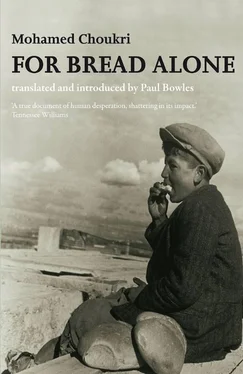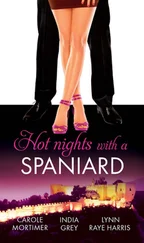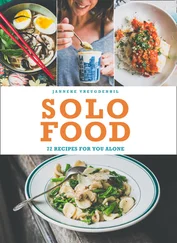I began to pull off the feathers.
I hear her voice. What are you doing? Where did you steal that?
I found it. It was sick. But I killed it before it died.
You’re crazy. She pulled it away from me. People don’t eat carrion.
My brother and I exchanged a glance of regret. The hen was lost.
Each afternoon my father comes home disappointed. Not a movement, not a word, save at his command, just as nothing can happen unless it is decreed by Allah. He hits my mother. Several times I have heard him tell her: I’m getting out. You can take care of those two whelps by yourself.
He pours some snuff onto the back of his hand and sniffs it, all the while talking to himself. Bitch. Rotten whore. He abuses everyone with his words, sometimes even Allah.
My little brother cries as he squirms on the bed. He sobs and calls for bread.
I see my father walking towards the bed, a wild light in his eyes. No one can run away from the craziness in his eyes or get out of the way of his octopus hands. He twists the small head furiously. Blood pours out of the mouth. I run outdoors and hear him stopping my mother’s screams with kicks in the face. I hid and waited for the end of the battle.
The voices of the night, far away and near. For the first time I realize that I can hear better at night than by day. I looked up at the sky. Allah has turned on the lights. Clouds sail across the face of the big lamp. My mother’s ghost appears. She is calling me in a low voice, searching for me in the darkness as she sobs. Why is she so weak? Why isn’t she strong enough to hit him as hard as he hits her? Men hit. Women scream and weep.
Mohamed! Come here! There’s nothing to be afraid of. Come here.
It gave me great pleasure to see her knowing that she could not see me. A little god.
After a while I said: Here I am.
Come here.
No. He’ll kill me. He killed Abdelqader.
Don’t be afraid. Come. He’s not going to kill you. Come on. But be quiet, so you won’t wake the neighbours.
He was in the room taking snuff and sobbing. I was astonished. He kills Abdelqader and then he cries about it.
They sat up all night, weeping silently. I went to sleep and left them sobbing together. In the morning we cried again, all of us. It was the first time I had seen a funeral. My father walked behind the old man who carried the litter, and I followed at the back, lame and barefoot.
They drop him into the wet hole. I cry and shiver. There is a mass of coagulated blood beside his mouth.
On the way back home the old man noticed the blood coming up between my toes, and spoke to me in Riffian. What’s that?
He stepped on some glass, said my father. He doesn’t even know how to walk. He’s an idiot.
Did you love your brother very much? the old man asked me.
Yes, I said. And my mother loved him more. She loved him more than she did me.
All people love their children, he said.
I thought of how my father had twisted Abdelqader’s neck. I wanted to cry out: He killed him! Yes. He killed him. I saw him kill him. He did it. He killed him! I saw him. He twisted his neck around, and the blood ran out of his mouth. I saw it. I saw him kill him! He killed him!
To ease the unbearable hatred I felt for my father I began to cry. Then I was afraid he was going to kill me too. He began to scold me in a low voice loaded with menace. Stop that. You cried enough at home.
Yes, said the old man. Stop crying. Your brother is with Allah. With the angels.
I hate even the old man who buried my brother.
Every day he bought tobacco and a sack of white bread. He goes somewhere far from Tangier to barter with the Spanish soldiers in their barracks. Each afternoon he comes in carrying uniforms. He sells them in the Zoco de Fuera to workmen and poor people.
One afternoon he did not come back. I went to bed, leaving my mother bathed in tears. We waited three days. I wept with her, certain that I did it only to console her. I did not ask her why she was crying. She does not love him, I know.
I find out why she is crying only when she tells me. Here we are, all alone. Who’s going to help us? We don’t know anybody in this city. Your grandmother Rouqaiya, your Aunt Fatima and your Uncle Driss have all gone to Oran. Your father deserted from the Spanish army. They were looking for him. They must have found him.
We learned later that this had been the case. He had refused to sell a blanket to a Moroccan soldier who wanted it at a very low price, and the soldier had denounced him to the authorities.
She goes to the city in search of work. She comes back disappointed, just as my father used to do when we first arrived in Tangier. She sits biting her nails distractedly. She sobs. Sorcerers make her talismans to wear around her neck; perhaps my father will get out of prison and she will find work. She says her prayers and lights candles at the tombs of the saints. She looks for luck at the fortune-teller’s. There is no way out of prison, there is no work, no luck, save by order of Allah and Muhammad his prophet; this is what she says. I began to think: Why doesn’t Allah give us our good luck the way he gives it to other people?
I passed the question to my mother. That’s something we can’t ask, she said. He knows much better than we do, and when he wants us to know, he’ll tell us.
She sold some things we did not need, and sent me with some other boys of the neighbourhood to pick some rosemary for her. I was afraid the boys were going to hurt me. There was no friend among them who would come to my aid if they should all jump on me at once. It had often happened. I would get into a fight with one, and they would all attack me. They helped each other.
I stayed well behind them in the middle of the road. Then I turned and went down to the city. I like the way it moves. In the Zoco de Fuera I filled my stomach with cabbage leaves and orange peel.
A policeman is chasing another boy, older than I. Not much distance between them. I imagine I am the boy. I felt myself panting with him. People were crying: He’s going to catch him! He’s going to catch him! He’s going to catch him! There he goes! He’s got him!
I trembled. I felt fear, as if I had been caught myself. I would have asked Allah not to let them catch him. But they have already caught him. I hate the people who wanted the policeman to catch him.
A breathless European woman arrived and stood behind the small group of people that had been watching the capture.
It was one like that, she said.
All he left was the handle of the bag, someone was saying.
A second later I felt the blow of a nightstick on my buttocks. I leapt into the air, crying out in Riffian: Ay mainou! Ay mainou!
I imagined myself cursing the man. There were two other policemen now, beating the boys and pushing the men. Some of the more poorly dressed men got blows, too. I had thought that the police beat you and took you to jail only if you had killed or robbed somebody, or drawn his blood in a fight.
I went to the graveyard in Bou Araqia. Large bunches of myrtle had been left on some of the richer tombs. I gathered them up and carried them to my brother’s grave. There were many graves without tiles marking them, and without myrtle on them, like my brother’s. A mound of earth and two stones of different shapes, one for the head and one for the feet. The sight of the neglected graves hurt me. I thought: Even here in the cemetery there are rich people and poor people.
I found big clumps of rosemary growing there among the graves. There were three men passing a bottle from one to the other and drinking a dark liquid from it. One of them called to me: Hey! Come here, boy! Agi!
I was afraid. I fled.
At lunch she said to me: That rosemary is very sweet.
Читать дальше












